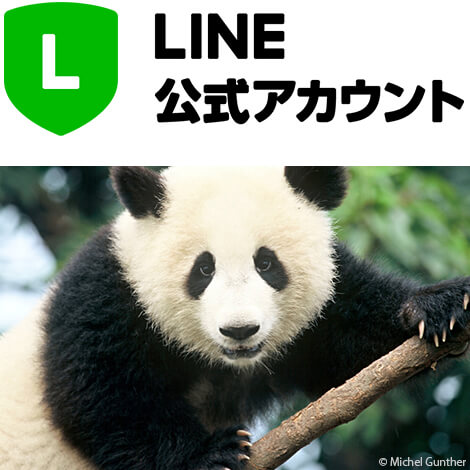【WWF Japan Statement】 Tokyo Olympic Games: Inadequate Sustainability ~Concrete procurement figures must be disclosed~
2021/07/19
In this unprecedented pandemic, it has been a difficult path to the holding of the Tokyo Olympic and Paralympic Games, with much focus on the absence of spectators. In contrast, there has been little focus on the sustainability initiatives that are indispensable to an international sporting event in the age of SDGs. However, in the shadow of this, WWF Japan is very concerned that the Games will be held without any improvement of their inadequate sustainability initiatives.
The Tokyo Olympic and Paralympic Games are to be held as ‘Sustainable Games’, taking the environment and society into consideration. However, although the Games’ decarbonization initiatives deserves to be highly evaluated, there are several issues with the ‘Procurement Code’ created by the Tokyo Olympic and Paralympic Games Organising Committee, which the WWF has repeatedly pointed out.
In particular, most problems are with the individual procurement standards for wood, paper, marine products and palm oil to be used at the Games. The procurement of these problem products deeply affects the conservation of natural forest and marine environments both in Japan and overseas and it is important that Japan is answerable on an international level. As methods to guarantee these procurement standards have become more lenient, there has been claim after claim concerning the violation of human rights and loss of biodiversity in local areas in the natural habitat of Southeast Asia, for example, due to procurement for buildings for the Tokyo Games. Even if the prescribed procurement standards for marine products that manage resources and conserve the ecosystem are not met, simply formulating resource management “plans” leaves a huge loophole when it comes to whether everything is OK in reality.
Furthermore, ‘effective use of resources’, which is one of the basic principles of the procurement code, should be the top priority but there is almost no concrete evidence of initiatives to prevent, reduce or reuse materials before becoming waste and there is a strong bias towards the promotion of recycling of waste. This is also inadequate to meet the aim of becoming a successful case of a sustainable circular economy to eliminate plastic pollution in the ocean, which is a serious global issue.
The reason for the inadequacies in this procurement code has been put down to the fact that domestic sustainability initiatives are not progressing and, in the ‘Sustainable Games Pre-report – Supplementary Version’ published just before the Games open in July, 2021, it is stated that ‘ordinary consumers are not yet used to sustainable consumption and certification systems’ and that the Organising Committee will take the opportunity of the Tokyo Games to promote improvements in initiatives and consumer awareness.
However, the WWF has repeatedly stated that relaxing sustainability initiative standards because there is low awareness among consumers is a failure to properly evaluate the situation. The creation of sustainability standards for the Tokyo Olympics began in 2016, which is now 5 years ago with the delay due to the coronavirus pandemic. By showing procurement standards that guarantee a high level of sustainability, the awareness of companies that procures will be raised, and, consequently, it will reach consumers.
The Organising Committee has reported that there has at least been progress with recognition of sustainability initiatives due to the Tokyo Olympics. If that is true, it is essential to publish concrete figures such as how much each company’s action have progressed, how much progress has been made with obtaining certification that makes it possible to guarantee sustainability and the ratio of certified products included in procured products. Sustainability initiatives can no longer just be lip service; with sustainable procurement being mainstream, particularly in Europe, this business is inevitable. Precisely in order to improve international competition for Japanese companies, we must accelerate sustainable procurement initiatives. That is why we would like the role of the Tokyo Olympics to be quantified in figures once they are over and for the world to respond by verifying them.
WWF Japan once again strongly raises the following two points before the opening of the Tokyo Olympics.
The Organising Committee must disclose procurement results after the Games are over. Specifically, production areas for all products that are eligible in the procurement policy and the ratio of certified products, including a breakdown of each certification should be disclosed.
Marine products: certified marine products fish species and procured volume by certification scheme. Eligible procurement standards (4 – 7) and volume should be clarified for uncertified marine products.
Wood: production areas for all products that are procured for the Games and the ratio of certified products, including a breakdown of each certification should be disclosed.
Palm oil: with regard to procurement volume by certification scheme and uncertified products, in addition to procurement volume, it should be disclosed whether there has been implementation of third-party checking according to Procurement Standard 4.
Paper: information concerning operational results should be disclosed. Such as the volume of paper products that are eligible in the procurement policy, the ratio of recycled paper and virgin pulp production countries (regions), the ratio of certified production, including a breakdown of each certification and checking methods if checked for sustainability using a method other than certification.
There should be an external review of the Organising Committee’s Procurement Code and its operational results, which should be made public in a report after the Games by 31st December 2021.
It should be noted that the ‘Sustainable Games Pre-report – Supplementary Version’ states that ‘Documents introducing the certification systems adopted for Tokyo 2020 Procurement Standards will be created and published on a website’ but we would like to know specifically what kind of measures have been implemented to improve consumer awareness and initiatives and what results they produced, in a report after the Games that explains the causal relationship. Further, with regard to effective certification as a method to check initiatives for palm oil and sustainability, at the moment, there is information on the increase in certified companies as a result of the Games, but we would like to know specifically what kind of measures have been implemented to improve company awareness and initiatives, including other products, not just palm oil, and, if these results increased, a report after the Games that explains this causal relationship, too.
Finally, WWF acknowledges that the Tokyo Olympics is one of the more progressive recent Games with respect to decarbonization. First of all, they have achieved energy-saving aims and operations will be powered by 100% renewable energy. The remaining emissions will be offset with carbon credits selected with strict standards and these will be the first decarbonized Olympic and Paralympics in history. For Japan, which has been slow in implementing climate energy policy, we expect the Tokyo Olympic initiatives to give a push to decarbonization and the promotion of energy-saving across the country. Furthermore, we are waiting for the report of results with concrete figures such as how far the switch to 100% renewable energy has progressed for electricity contracts for existing venues.







